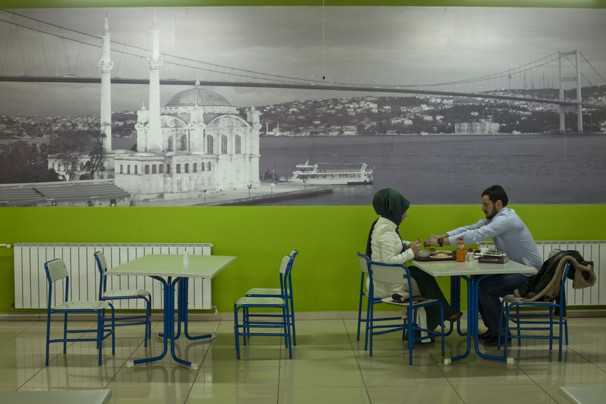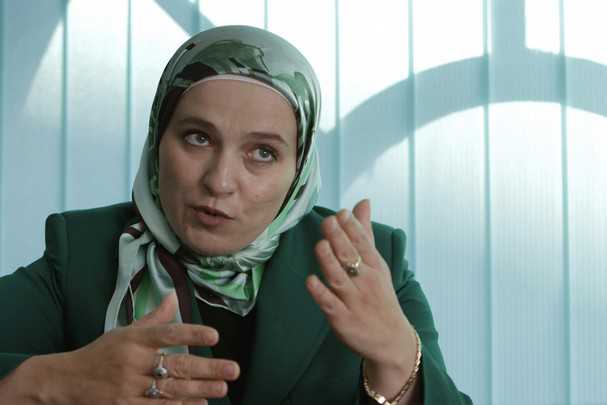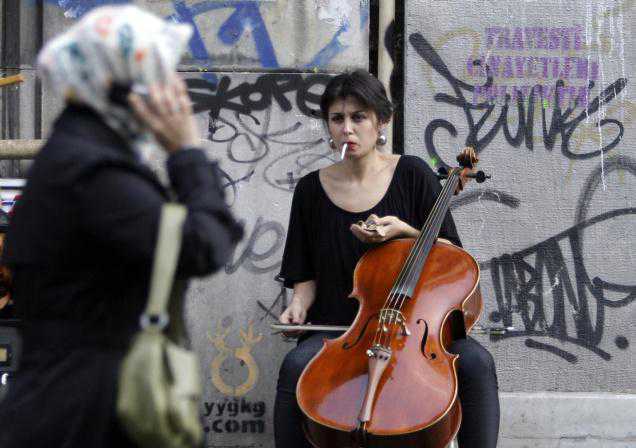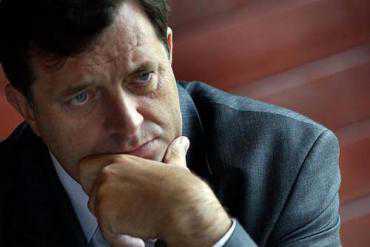Growing presence in Bosnia has given Turkey an expanding field of influence in Europe
-
Michael Birnbaum for the Washington Post
- Guardian Weekly,
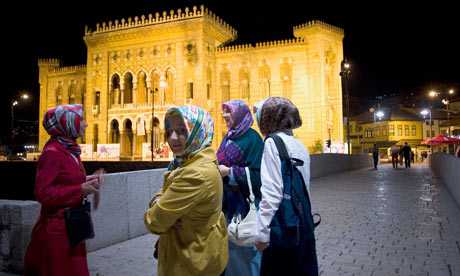
Turkey conquered the Balkans five centuries ago. Now Turkish power is making inroads through friendlier means. Two Turkish-run universities have opened in Bosnia’s Ottoman-influenced capital Sarajevo in recent years, bringing an influx of Turkish students and culture to a predominantly Muslim country still reeling from a brutal ethnic war almost two decades ago.
Turkish investment has expanded across the Balkans, even in Croatia and Serbia, where mostly Christian residents remember the sultans from Constantinople (now Istanbul) as occupiers, not liberators. Turkey has helped broker talks between formerly bitter enemies in the Balkans. And the growing presence has given Turkey an expanding field of influence inEurope at a time when the country’s prospects of joining the European Union appear dubious.
“Turkish leaders are working at a new Ottoman empire, a gentle one,” said Amir Zukic, the bureau chief of the Turkish Anadolu news agency’s Sarajevo office, which has expanded in recent months. “Turkey, a former regional power, is trying to come back in a big way.”
Turkey’s presence in Bosnia was largely dormant during the more than 40 years that the Balkan country was part of communist Yugoslavia, which was not receptive to Turkish religious and historical influences. But during the mid-1990s, as Yugoslavia fell apart, Turkish aid started flowing to the Muslims who comprise about half of Bosnia. Since then, Turkish funding has helped reconstruct Ottoman-era monuments that were targets of ethnically motivated destruction.
Now Turkey’s cultural influence is hard to miss. Turkish dignitaries are frequent visitors to Sarajevo. A grand new Turkish embassy is being built near “sniper alley”, a corridor where, during the three-year siege of the capital city in the war, Bosnian Muslims struggling to go about their daily business were frequently shot at by Serbian snipers stationed on nearby hills. Billboards advertise round-trip flights to Istanbul for the equivalent of $75. And this year, a baroque soap opera based on the life of Suleiman the Magnificent, a 16th‑century ruler of the Ottoman empire, has mesmerised couch potatoes in Bosnia’s dreary winter.
The biggest outposts in Bosnia have been the two Turkish-backed universities, which have mostly Turkish student bodies.
At the International University of Sarajevo, students who enter the main door of the building erected two years ago have to pass under the watchful eye of Sultan Mehmed the Conqueror, the Ottoman ruler who introduced Islam to Bosnia in 1463. The private university is backed by Turkish businessmen who are close to Turkish prime minister Recep Tayyip Erdogan’s political party. The university started in 2004 and has grown to 1,500 students. It is shooting for 5,000, the capacity of its new building.
Classes are held in English, and there is a western curriculum heavy on practical subjects such as business and engineering. But both Turkish and Bosnian students say that part of the attraction of the school is the cultural exchange that takes place among the groups. Each cohort has to learn the other’s language.
Administrators are transparent about the school’s ambitions. “The Turks are attracted to come here because they believe that Bosnia, for all its problems, will be in the EU before Turkey is. And they see this as a bridge between two countries,” said Muhamed Hadziabdic, the vice-rector of the school, who is a Bosnian Muslim. Turkish people “like Bosnia”, he said. “It’s European, but it still feels like home. The smell, the culture, it’s recognisably Turkish.”
Bosnian students eye Turkey’s growing economy with interest; their country’s official unemployment rate last year was 46%, far higher than in Turkey. Many of the Turkish students, who make up 65% of the school, say they are there for a taste of freedom away from the watchful eye of their families. Some say they plan to stay in the region and develop businesses.
“When I was little, I wanted to go to a foreign country. I wanted to learn a foreign language,” said Fatih Selcuk, 19, a first-year student from Izmir, Turkey. “Bosnia was in the Ottoman Empire, so it’s similar to Turkey. My father said you should go to Bosnia-Herzegovina, because it’s Slavic but it’s Muslim.”
The other Turkish school in Sarajevo, the International Burch University, opened in 2008 and has connections to Fethullah Gulen, an influential Muslim Turkish preacher who runs an international religious and educational movement from Pennsylvania.
Officials at Burch also speak of their desire to forge connections between Turkey and the Balkans. Students there tend to be more religiously conservative, but as with the International University of Sarajevo, the curriculum is secular.
The Turkish expansion into the region comes as Turkey’s long-held dream of joining the EU seems remote. Western European powers, especially Germany, have been concerned that Turkey’s 74 million residents could flood Europe in search of jobs. Some officials have questioned whether the Muslim-majority country is European at all.
But Bosnia is firmly within Europe – even though Sarajevo’s old city is a dense warren of shops and centuries-old storefronts that is reminiscent of Istanbul. Turkey’s expansion into European regions that once were part of its empire is one way of making up for being excluded from the EU, some analysts say.
Turkey’s growing presence has upset some Bosnian Serbs, who maintain a parallel government in Bosnia under the complicated system dictated by 1995 peace agreements. Officials from the parallel government have complained that the Bosnian Muslim part of the country is falling under the influence of a former imperial power.
“For Islamists, a return of Turkey back to the Balkans is a fulfilment of ambitions. But for many Serbs and also for many Croats, their national struggle in the 19th century is still in their minds,” said Esad Hecimovic, the editor of news programmes on OMT, the private television station that has been airing the soap opera about Suleiman the Magnificent.
Still, even Serbia and Croatia have welcomed Turkish investment. Turkey was the third-largest investor in Mediterranean Croatia in the first three-quarters of 2012, and Erdogan has pursued closer ties with Serbia, a long-time rival. Turkish diplomats also have worked to broker talks between the Serbian and Bosnian governments.
The efforts in the Balkans have given Turkey a new venue for economic growth as it has grappled with ethnic violence that has engulfed neighbouring Syria. There, a diverse nation that also was once part of the Ottoman Empire is threatening to tear itself apart – a development that has similarities to what happened in Yugoslavia.
Many in the Balkans think they are merely a waypoint on the route toward Turkey’s broader goals. “They are a big regional power,” said Hayruddin Somun, a former Bosnian ambassador to Turkey. “The Balkans was always their path to conquering Europe. They had to come through here.”
• This article appeared in Guardian Weekly, which incorporates material from the Washington Post

